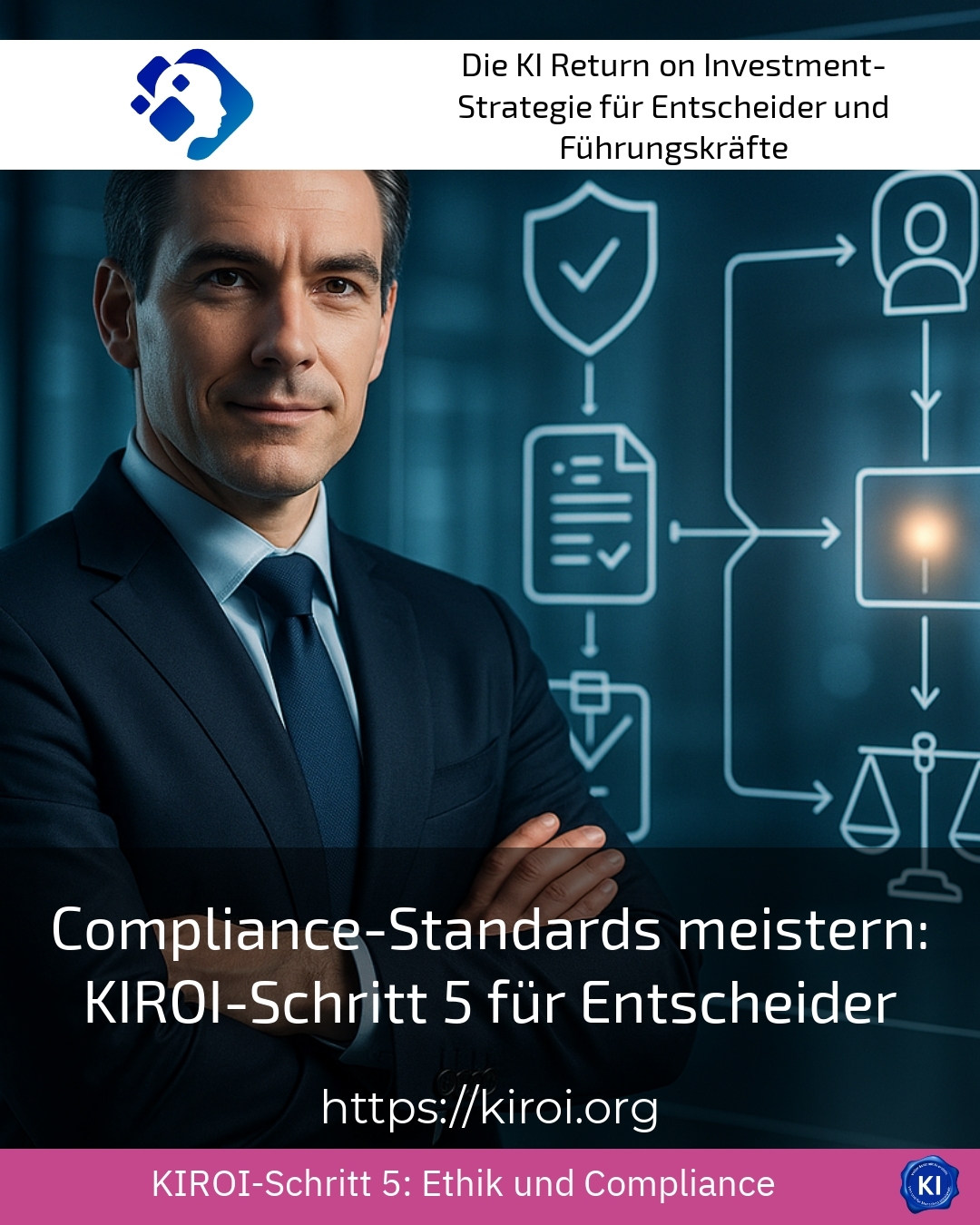Mastering compliance standards through targeted support
Compliance standards are a challenging task for many decision-makers. The requirements are constantly changing and require careful coordination of internal processes and clear responsibilities. It is not enough just to know the regulations. Clients often report that they need support with sustainable implementation and anchoring in the company. A structured support process can provide decisive impetus for successfully mastering compliance standards.
Analyse internal processes and clarify responsibilities
A precise analysis of internal processes is an important basis. Compliance can only be implemented effectively if responsibilities are clearly assigned. This often reveals interfaces and potential weak points that increase the risk of violations. Practical workshops in which teams work together to develop solutions and create transparency are therefore recommended.
KIROI BEST PRACTICE at company XYZ (name changed due to NDA contract) A financial services company began with a detailed process analysis. Responsibilities were reorganised and documented in a manual. At the same time, interactive workshops were held to raise awareness of compliance requirements. The result was a measurable reduction in errors in the documentation work.
In the software industry, it is important that development teams are involved in compliance issues at an early stage. It helps to clearly communicate and regularly review technical and legal requirements for programme codes and data processing.
KIROI BEST PRACTICE at company XYZ (name changed due to NDA contract) A software company set up a compliance team that worked closely with the developers. Compliance regulations were integrated directly into the development process. The team received continuous coaching in order to be able to implement new standards quickly.
Training and sensitisation as a success factor
Compliance standards cannot be realised through paper rules alone. Employees need to understand why these rules are important and internalise them. Clients often report that workshops and training sessions are helpful companions. These not only promote understanding, but also reduce the anxiety that can accompany complex regulations.
In the manufacturing industry, realistic scenarios are often used to illustrate specific risks and their consequences. These practical exercises significantly increase the motivation to work in compliance with regulations.
KIROI BEST PRACTICE at company XYZ (name changed due to NDA contract) A manufacturing company developed a customised training programme with the help of external support. Employees from various departments were trained in practical compliance simulations, which led to increased awareness and fewer violations in day-to-day business.
Regular awareness-raising measures are also crucial in the healthcare sector. Staff are trained to comply with data protection and security standards without losing focus on patient care.
Monitoring and continuous adjustment of compliance standards
Compliance is not a state, but a process. Continuous monitoring helps to recognise emerging risks at an early stage. Modern digital tools offer valuable support here. At the same time, it is important not only to focus on monitoring, but also to encourage constructive feedback and open communication. This creates a culture in which compliance is perceived as a positive force.
KIROI BEST PRACTICE at company XYZ (name changed due to NDA contract) A digital platform for compliance monitoring was introduced in a mechanical engineering company. The accompanying consultancy helped to define suitable key figures and establish regular analyses. This allowed risks to be addressed immediately and standards to be continuously optimised.
In the financial sector, automated audits support compliance with complex regulatory requirements. Nevertheless, teams benefit from personalised support so that they can respond to individual challenges in a targeted manner.
Continuous support strengthens long-term compliance
The goal is sustainable compliance management that reacts flexibly to new requirements and involves employees equally. Experience shows that companies create a stable foundation more quickly with professional support. The aim is to provide impetus and demonstrate how compliance can be practised proactively. This understanding promotes a positive attitude towards compliance standards, which are essential for safe and responsible corporate governance.
My analysis
Mastering compliance standards requires more than just knowledge of the rules. A transparent process analysis, the active involvement of employees and continuous monitoring are essential. Decision-makers should therefore choose a companion who supports them with both practice-orientated coaching and target-oriented tools. Experiences from other industries that show how adaptive compliance cultures can be established are particularly valuable. This makes it possible to recognise risks at an early stage and strengthen trust within the company.
Further links from the text above:
[1] ISO 27001:2022 Key Risk Indicators (KRIs)
[4] How to Develop Effective Key Risk Indicators + Best Practices
[5] Content Compliance: Balancing SEO with Regulatory Requirements
[7] Mastering compliance guidelines: KIROI step 5 for decision makers
For more information and if you have any questions, please contact Contact us on the topic or read more blog posts on the topic Artificial Intelligence Blog here.















